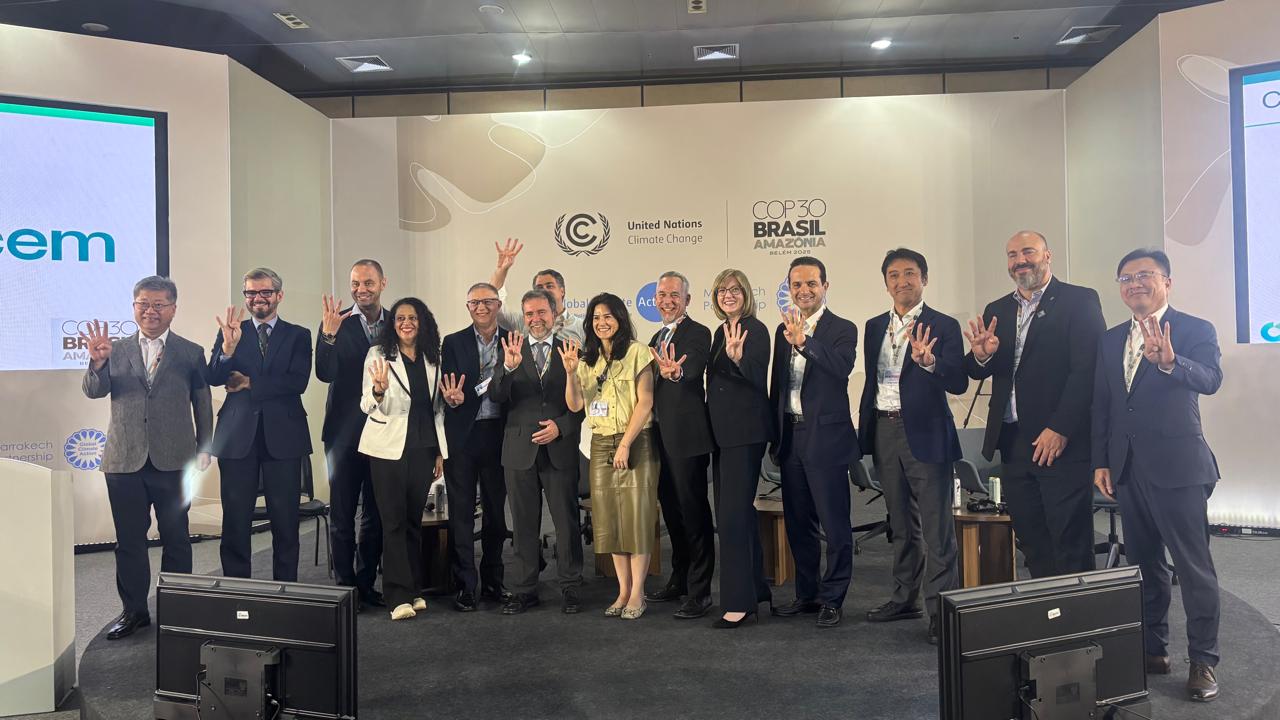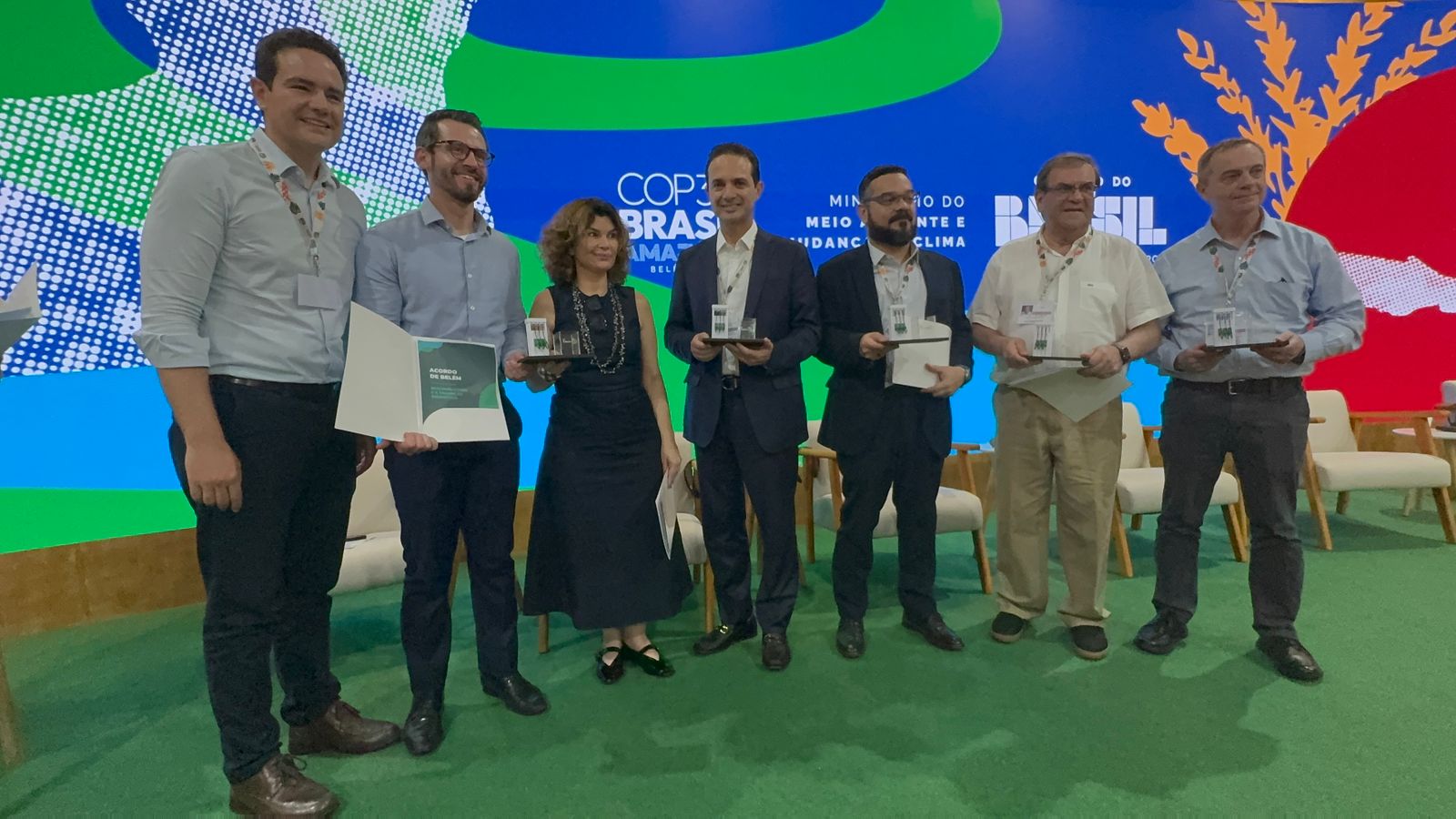
From October 1 to 4, in Foz do Iguaçu, member states and representatives of society discussed the most important challenges and solutions for a clean energy transition. The Sugarcane and Bioenergy Industry Association (UNICA), in partnership with the Brazilian Trade and Investment Promotion Agency (ApexBrasil) promoted six events that brought together energy ministers of the world’s main economies and representatives from research institutions and companies. In Foz, delegations were transported in hybrid flex vehicles and flex vehicles fueled with ethanol. These actions are part of the Brazilian Sugarcane Ethanol project.
UNICA was represented by its CEO, Mr. Evandro Gussi, who, during the entire week shared with authorities, participants and specialists, the benefits of having Brazilian ethanol as part of the solution in fighting climate change.
The Brazilian case of ethanol production and use was taken as a successful example of how biofuels can help in the transition to a low-carbon transport sector. Since the late 1970s, this biofuel has been used in vehicles that run exclusively on ethanol, and later also in flex-fuel engines. Compared to gasoline, ethanol reduces CO2eq emissions by up to 90%. From 2003 (when flex-fuel cars were introduced in Brazil) to December 2023, the use of ethanol has prevented the release of more than 660 million tons of CO2 into the atmosphere.
These impressive results and the fact that biofuels represent an immediately available and affordable solution to decarbonize the transport sector are the subject of the executive summary (Ethanol Handbook) of the book: “Bioethanol: Fast Track to Decarbonizing Mobility”, organized by professor Luiz Horta Nogueira and produced with the support of the National Bank for Economic and Social Development (BNDES) and the Center for Management and Strategic Studies (CGEE), with the coordination of the Brazilian Ministries of Foreign Affairs (MRE), Mines and Energy (MME) and Science, Technology and Innovation (MCTI). On October 1, a kick-off event was held in Foz do Iguaçu on the first day of the G20 meeting.
All conducted debates and negotiation resulted in a ministerial declaration by G20 member states. After three years of failing to reach a consensus, the G20 Energy Transition Working Group approved unanimously and released a declaration recognizing today’s energy inequality and the difficulties faced by developing countries in accessing low-carbon technologies and financing. The document emphasizes the need for an inclusive and equitable energy transition with special support for poor and vulnerable people to ensure energy security, market stability and universal access to affordable, clean energy.
One of the highlights of this declaration was the commitment of member states to develop methodologies and standards to take into account scientific and technical information from the IPCC as well as national statistics and collaborating to increase consistency in methodological approaches to assessing GHG emissions from renewable fuels. This is a step forward in admitting the importance and central role of biofuels in decarbonizing the global transport sector.
“We end this week with the certainty that the future of the planet and the reduction of emissions will depend not just on one, but on different solutions and different technological routes suited to the characteristics and reality of each region. And in this regard, we can proudly say that Brazil is on the right path, because here we produce bioenergy that transforms the future”, stated Mr. Gussi
About Sugarcane Ethanol Project
ApexBrasil and UNICA made public in 2008, through the Brazilian Sugarcane Ethanol partnership, a strategy to promote the image of sugarcane products abroad, especially Brazilian ethanol as a clean and renewable energy. In 2023, the two entities signed an agreement that provides for shared investments.
The sectoral project aims to influence the process of building the image of ethanol and other sugarcane derivatives among the main global opinion makers – governments and the media, as well as trading companies, potential investors and importers, NGOs and consumers.
About ApexBrasil
The Brazilian Trade and Investment Promotion Agency (ApexBrasil) works to promote Brazilian products and services abroad and attract foreign investments to strategic sectors of the Brazilian economy. In order to achieve its goals, ApexBrasil carries out several trade promotion initiatives aimed at promoting Brazilian products and services abroad, such as prospective and trade missions, business rounds, support to the participation of Brazilian companies in major international fairs, visits of foreign buyers and opinion makers to learn about the Brazilian productive structure, among other business platforms that also aim at strengthening the Brazil brand. The Agency also acts in a coordinated way with public and private players to attract foreign direct investment (FDI) to Brazil with a focus on strategic sectors for the development of the competitiveness of Brazilian companies and the country.



